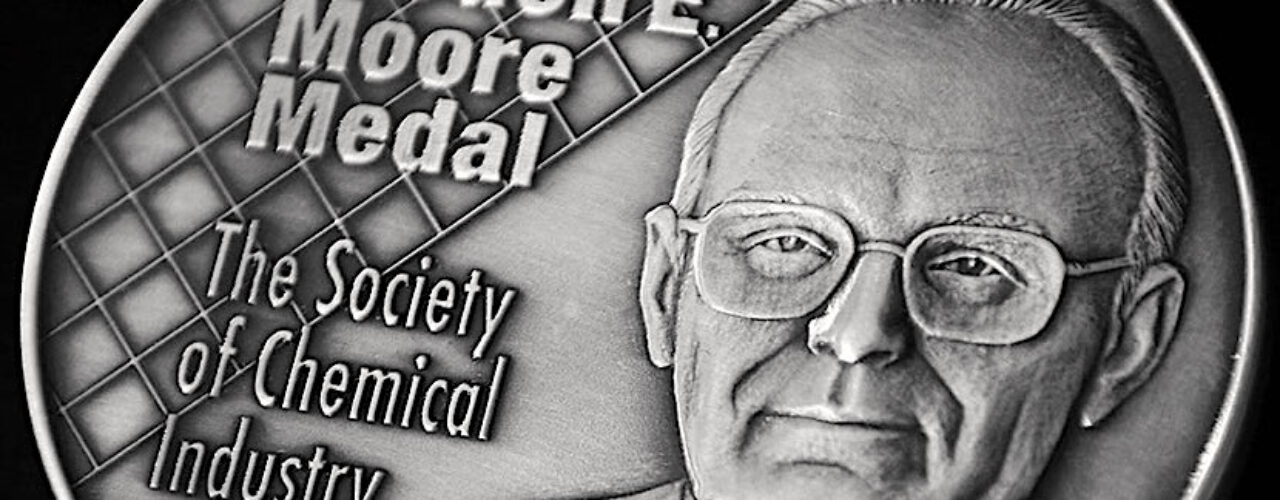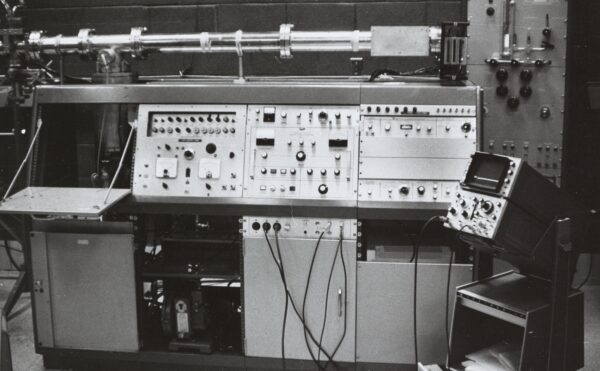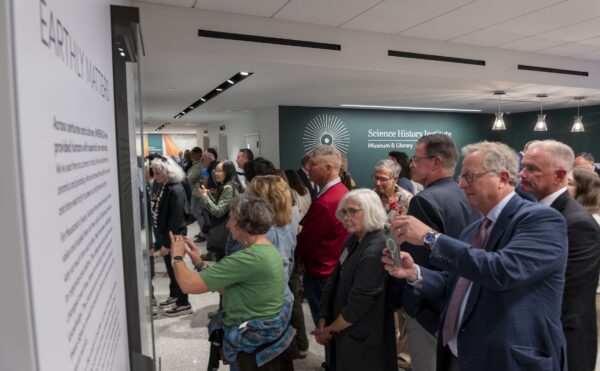
2024 SCI Moore and Perkin Medal Winners Announced
DuPont’s Caleb Funk and Chevron Phillips Chemical’s Max McDaniel will be honored by the Society of Chemical Industry and the Science History Institute as part of Innovation Day on September 9 in Philadelphia.
The Society of Chemical Industry (SCI) America has announced that DuPont lead R&D scientist Caleb Funk is the recipient of the 21st annual Gordon E. Moore Medal and Max McDaniel, senior fellow scientist at Chevron Phillips Chemical, will receive the 2024 Perkin Medal. Funk and McDaniel will be honored on September 9 as part of Innovation Day, a daylong collaborative research conference cohosted by SCI and the Science History Institute.
Named after chemist Gordon E. Moore, the Intel Corporation cofounder who was a longtime member of the Institute’s Board of Advisors, the Moore Medal recognizes early-career success in innovation, as reflected both in market impact and improvement to quality of life. The Perkin Medal, which commemorates the 1856 discovery of the first synthetic dye—Perkin’s mauve—by Sir William Henry Perkin, is one of the highest honors given for outstanding work in applied chemistry.
Funk will receive the prestigious Moore Medal during a luncheon at the Institute’s headquarters in Philadelphia, while McDaniel will be feted at a special awards dinner that will be the final event of Innovation Day.
Caleb Funk: 2024 SCI Gordon E. Moore Medalist

“Through his research at DuPont, Caleb developed a new polyamide chemistry that changed multiple aspects of the traditional membrane process and applied these innovations to multiple membranes that are now commercialized,” said Roger Kearns, president and CEO of NOVA Chemicals and chair of SCI America. “In dedicating his scientific career to creating new and improving existing membranes, Caleb has significantly contributed to improved recovery and better reliability in industrial wastewater. His work has direct and measurable impacts on sustainability and energy conservation, and we are thrilled to recognize his achievements.”
DuPont Water Solutions is one of the world’s leading suppliers of nanofiltration membranes. This technology can be used to recover, recycle, and concentrate valuable solutes in mining, industrial chemical processes, microelectronics manufacturing, dairy processing, and many more applications. Funk led the technical development of multiple reverse osmosis and nanofiltration membrane breakthroughs over the last 15 years that improved the transport properties, energy efficiency, and sustainability of membrane separations. Funk’s membrane innovations, fully realized in an expanding range of DuPont Water Solutions products, have led to improved sustainability and financial advantages for a wide array of applications.
“Caleb represents the essence of what it means to be a fearless innovator at DuPont. He has elevated the field of research in the area of nanofiltration and used it for the benefit of our customers and for the purpose of helping humanity thrive,” said Alexa Dembek, chief technology and sustainability officer at DuPont. “It is in this unique space where chemistry, innovation, and sustainability intersect that Caleb excels. I’m so very proud to call Caleb a colleague and on behalf of all his teammates at DuPont, I offer him our deepest congratulations on this career milestone.
About Caleb Funk
Caleb Funk is a lead R&D scientist at DuPont focused on water purification membranes, including ultrafiltration, nanofiltration (NF), and reverse osmosis (RO). Much of his career has been spent on membrane manufacturing process R&D, scaling up new process technologies from lab to pilot to full-scale, as well as process advancements for element fabrication. His current role includes nanofiltration membrane chemistry development and new quality control technology development for reverse osmosis membranes.
He has been recognized with several awards, including the DuPont Engineering Excellence Award in 2022 and 2023 for his work solving challenges with NF membrane manufacturing and Seawater RO membrane testing. DuPont has launched a portfolio of products incorporating an array of his membrane innovations, including the FilmTec™ Fortilife™ NF1000 nanofiltration membrane for industrial wastewater separations, winner of a 2023 R&D100 Award from R&D Magazine, the Edison Award-winning FilmTec™ LiNE-XD nanofiltration membrane for direct lithium extraction, and the FilmTec™ SWBR product line for seawater mineral recovery.
As part of the broader membrane community, Funk served on the board of the North American Membrane Society for eight years. During this time, he chaired both the membership and awards committees, was the society’s president in 2017 and 2018, and served for three years on the steering committee of the World Association of Membrane Societies.
Funk received his BS degree in chemical engineering from the University of Illinois and his PhD in chemical engineering from the University of Texas at Austin.
Max McDaniel: 2024 SCI Perkin Medalist

“Dr. McDaniel is recognized as a worldwide expert in the area of polyethylene catalysis,” said Roger Kearns, president and CEO of NOVA Chemicals and chair of SCI America. “His body of work consistently advances the science of catalysis and creates tremendous value across the global economy. We are thrilled to celebrate his accomplishments this fall.”
The Perkin Medal Selection Committee, which includes the chairs or presidents of the American Chemical Society, the American Institute of Chemical Engineers, the Science History Institute, and SCI America, noted McDaniel’s prolific contributions to innovations in polymer catalysis. From critical infrastructure and sterile medical supplies to enhanced food preservation and delivery, McDaniel’s contributions have improved the quality of life for people around the world.
About Max McDaniel
Max McDaniel is a senior fellow scientist at Chevron Phillips Chemical, where he has been responsible for significant advances in catalyst technologies for the polymerization and trimerization of ethylene, to produce high performance polyethylene and 1-hexene. In 2024 he was awarded his 500th U.S. patent.
Leading a small group of researchers for 40 years, he invented and commercialized numerous new chromium- and metallocene-based catalyst technologies, which have been adopted by dozens of polyethylene manufacturing plants throughout the world. Notably, he was the first scientist to investigate the ability of chromium catalysts to impart long chain branching (LCB) in polyethylene, and the important role that the catalyst physical structure plays in that process.
McDaniel devised catalysts to simultaneously produce comonomer and copolymer. LCB controls nearly every aspect of polymer processing and molding behavior. His discoveries led to the manipulation and development of many diverse polyethylene grades with both improved properties and processability.
McDaniel received a bachelor’s degree in chemistry from Southern Illinois University and received his doctorate in physical chemistry from Northwestern University. After receiving his doctorate, he continued research as a chercheur associé at the Institut de Recherches sur la Catalyse et l’Environnement in Lyon, France.
About the SCI Gordon E. Moore Medal
The Society of Chemical Industry America established the SCI Gordon E. Moore Medal as the premier recognition for early-career success in innovation, as reflected both in market impact and improvement to the quality of life. By highlighting extraordinary individuals and their work, SCI aims to promote public understanding of research and development in the modern chemical industries, enhance the interest of students in applied chemistry by providing role models, and emphasize the role of creative research in the global economy. The award is named after chemist Gordon E. Moore, the Intel Corporation cofounder who was a longtime member of the Institute’s Board of Advisors.
About the SCI Perkin Medal
The Society of Chemical Industry America Perkin Medal is recognized as the highest honor given for outstanding work in applied chemistry in the United States. It commemorates the discovery of the first synthetic dye—Perkin’s mauve—by William Henry Perkin in 1856. This discovery was a significant step forward in organic chemistry that led to the birth of a major segment of the chemical industry. The Perkin Medal was first awarded to Sir William at a banquet held by the SCI in New York in 1906. The room was festooned with banners dyed a brilliant Perkin mauve, a piece of which is on display in the Science History Institute Museum. Since then, more than 100 such awards have been given to notable scientists.
About the Society of Chemical Industry America
Established in 1894, SCI America is part of the Society of Chemical Industry’s international organization. It provides a unique networking forum for chemical industry leaders, industrial scientists, and technologists to exchange new business ideas and best practices. It celebrates achievement to promote public awareness of the contributions of industrial chemistry and inspires students to enter technical careers. SCI America events are managed by the Science History Institute.
More News
Melissa Sherman Joins Science History Institute’s Board of Directors
The MOBILion Systems founding CEO will help support the Institute’s mission and strengthen our relationships in the life sciences industry.
Science History Institute Hosts Food Drive to Support Philadelphia’s Old Pine Community Center
Donations of non-perishable items can be dropped off in the Institute’s lobby now through December 19.
Science History Institute Unveils New Mineral Exhibition at Packed Opening Celebration
Ribbon cutting officially opens Earthly Matters and brand-new gift shop, marking the completion of the Institute’s major lobby renovation.



